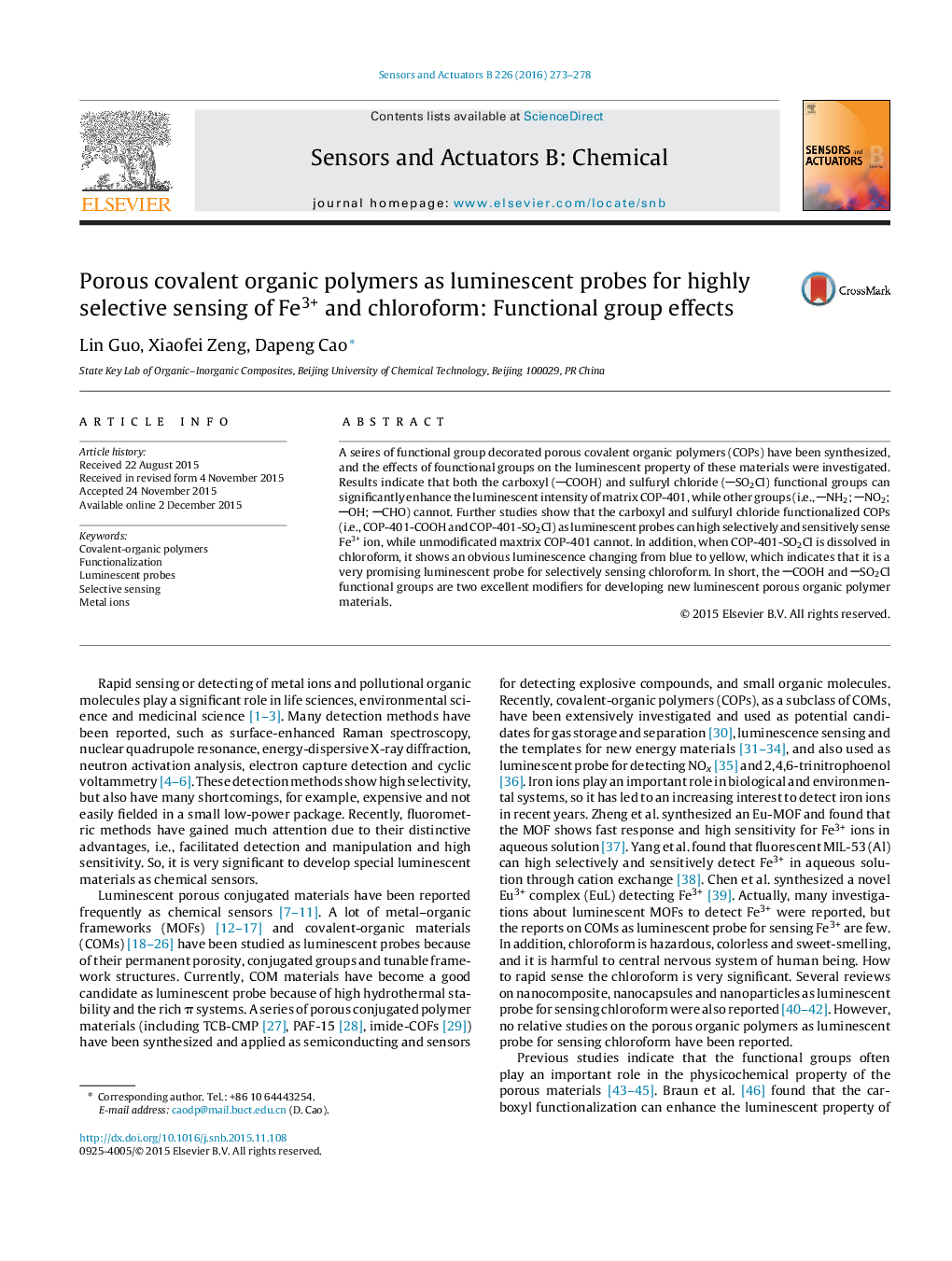| Article ID | Journal | Published Year | Pages | File Type |
|---|---|---|---|---|
| 7144774 | Sensors and Actuators B: Chemical | 2016 | 6 Pages |
Abstract
A seires of functional group decorated porous covalent organic polymers (COPs) have been synthesized, and the effects of founctional groups on the luminescent property of these materials were investigated. Results indicate that both the carboxyl (COOH) and sulfuryl chloride (SO2Cl) functional groups can significantly enhance the luminescent intensity of matrix COP-401, while other groups (i.e., NH2; NO2; OH; CHO) cannot. Further studies show that the carboxyl and sulfuryl chloride functionalized COPs (i.e., COP-401-COOH and COP-401-SO2Cl) as luminescent probes can high selectively and sensitively sense Fe3+ ion, while unmodificated maxtrix COP-401 cannot. In addition, when COP-401-SO2Cl is dissolved in chloroform, it shows an obvious luminescence changing from blue to yellow, which indicates that it is a very promising luminescent probe for selectively sensing chloroform. In short, the COOH and SO2Cl functional groups are two excellent modifiers for developing new luminescent porous organic polymer materials.
Related Topics
Physical Sciences and Engineering
Chemistry
Analytical Chemistry
Authors
Lin Guo, Xiaofei Zeng, Dapeng Cao,
